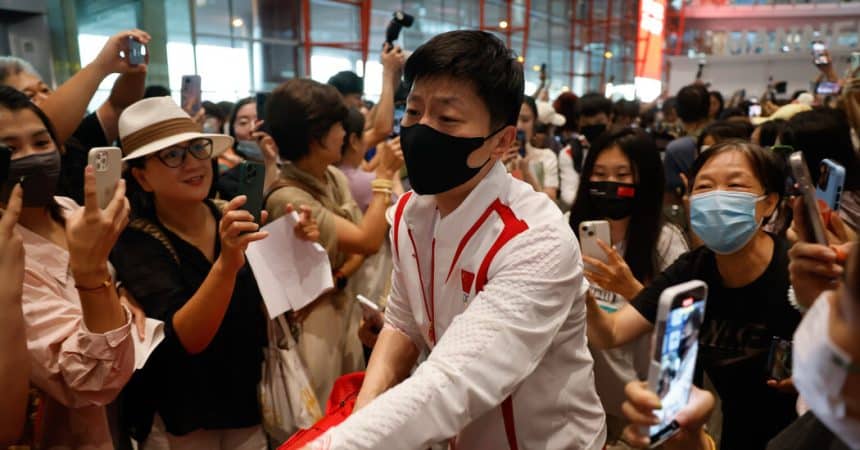A gold medalist diver’s mother said she was afraid for her daughter to come home after their hometown was swarmed with her supporters. A champion swimmer whose hotel was staked out by admirers disbanded his official fan group and told an interviewer he would rather have performed worse if it meant he would be left alone.
Other athletes have been hounded by crowds at airports or been the subjects of vicious arguments online between rival fan camps, leading Chinese official media to denounce fans for being “visibly aggressive.” The police have even detained at least two people for allegedly defaming athletes.
After a stellar run at the Paris Olympics, where China tied the United States for the most gold medals, Chinese athletes are now facing a darker side of that success: extreme fans.
Celebrities globally have to deal with fans who are sometimes invasive, but in China this phenomenon can be especially intense. Fan groups spend lavishly on products endorsed by their idols, deploy bots to ensure their favorites stay atop social media trending lists and even mount harassment campaigns against other stars and their supporters. Some fans stalk their idols and sell their photos or personal information.
At first, the obsession was directed mostly at actors and musicians. But in recent years, it has turned to athletes, too.
In southern China’s Guangdong Province, the village of Maihe, population a few thousand, has been flooded with over 1,000 visitors every day, according to Chinese media. They are there to see the home of Quan Hongchan, 17, who won two diving golds in Paris.
The New York Times










